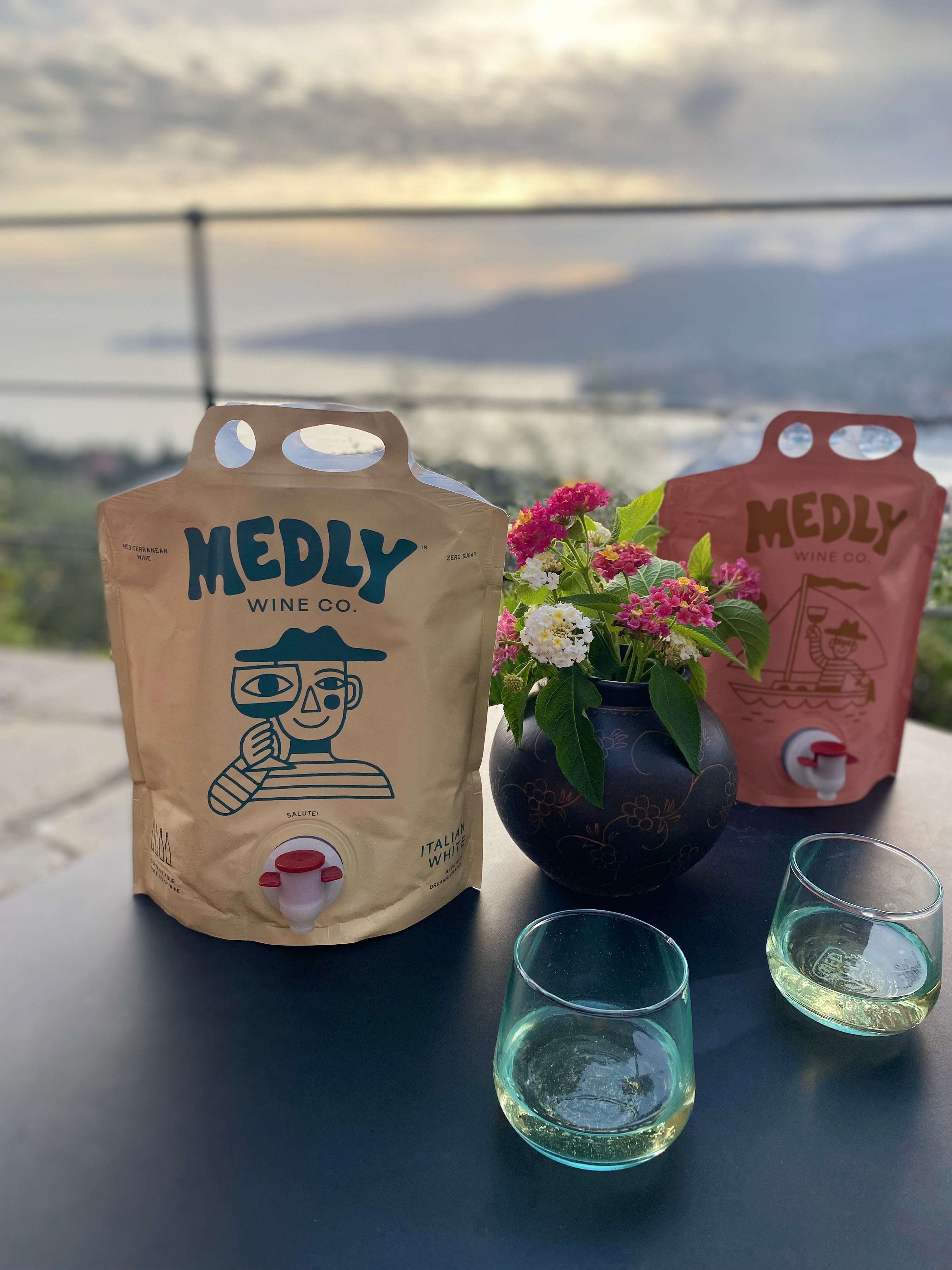We source our grapes from Sicily, the largest island in the Mediterranean. Sicily has long been known for its sun-drenched vineyards and ancient wine culture. But in recent years, a new chapter has been written in Sicily’s rich winemaking history: the organic wine revolution. As global demand for organic products continues to rise, more Sicilian growers are transitioning to organic farming. This trend isn't just about keeping up with consumer preferences—it's about a shift toward sustainability, resilience, and better practices for the land, workers, and communities involved.
The Growing Trend of Organic Farming in Sicily
Organic farming is booming across the world, and Sicily is at the forefront of this movement. The island's unique climate and fertile volcanic soils create the perfect conditions for growing high-quality grapes, but more and more winemakers are embracing organic practices for reasons beyond taste.
Sicilian farmers are adopting organic methods to ensure long-term health for their vineyards. Conventional farming relies heavily on synthetic chemicals such as pesticides and fertilizers, which can degrade the soil over time. By choosing organic farming, growers use natural alternatives like compost, green manure, and biological pest control, ensuring that their soils remain fertile and productive for future generations.
This shift is not only about sustainability but also a response to the growing consumer demand for cleaner, healthier food and drink options. As people become more health-conscious, they are more likely to seek out organic wines free from synthetic additives.
EU Government Subsidies: Supporting Sustainable Choices
Another key driver behind the rise of organic farming in Sicily is the support provided by European Union government subsidies. The EU has been encouraging sustainable farming practices for years, offering financial incentives for farmers who adopt organic and environmentally friendly methods.
These subsidies have made the switch to organic farming more accessible for smaller, family-owned vineyards across Sicily. This financial backing has accelerated the transition to organic methods, with more wineries now able to afford the initial costs of certification and the implementation of organic practices. As a result, Sicily has become one of Italy's leaders in organic wine production.
Better for the Environment and Soils
Organic farming methods promote healthier ecosystems, protecting the natural biodiversity of Sicily. Organic practices involve maintaining the natural balance of the vineyard’s environment, encouraging beneficial insects and cover crops to thrive. These farming techniques improve soil quality, reduce erosion, and enhance the vineyard’s ability to retain moisture—all crucial factors for long-term sustainability, especially in a region where droughts are becoming more frequent due to climate change.
By avoiding the use of chemical inputs, organic vineyards also help protect the surrounding environment, including nearby rivers, streams, and wildlife habitats. As environmental awareness grows, organic vineyards are playing a crucial role in preserving Sicily’s stunning landscapes.
Better for Farm Workers and Consumers
Organic farming not only benefits the land but also the people involved in the process. By eliminating exposure to harmful pesticides and chemicals, organic farms create a safer working environment for vineyard workers. These workers are no longer at risk of inhaling or handling toxic substances, leading to better overall health and working conditions.
For consumers, the benefits are clear as well. Organic wines are made without synthetic chemicals, which means cleaner, purer flavors in the bottle. Many wine drinkers prefer organic wines not only for their taste but also because they offer a healthier alternative to conventionally produced wines. With fewer chemical residues and a focus on natural production, organic wines provide a product that aligns with the values of health-conscious consumers.
Facing Climate Challenges: Organic as a Resilient Solution
Climate change presents a growing challenge for winemakers around the world, and Sicily is no exception. The island’s climate is becoming more unpredictable, with extreme weather events such as droughts, heatwaves, and storms becoming more frequent. These changes threaten grape yields and quality, making farming in this already arid region even more difficult.
Organic farming offers a resilient solution to these climate challenges. Organic vineyards are more adaptable to changing conditions because their soils are healthier and better able to retain water. The use of cover crops and organic mulch helps vineyards manage moisture levels and reduce the impact of heat. Additionally, organic practices encourage biodiversity, which helps protect vineyards from pests and diseases, further reducing their vulnerability to climate stress.
By focusing on organic methods, Sicilian winemakers are not only protecting the environment but also future-proofing their vineyards against the uncertainties of climate change.
Conclusion
The shift to organic wine production in Sicily is part of a larger global movement toward more sustainable, ethical, and environmentally friendly practices. With the help of EU subsidies, better prices, and a growing consumer demand for organic products, Sicilian winemakers are leading the charge toward a greener future. By embracing organic farming, they are safeguarding the health of their soils, the well-being of their workers, and the quality of their wines—ensuring that Sicily remains a beacon of sustainable winemaking for generations to come.





